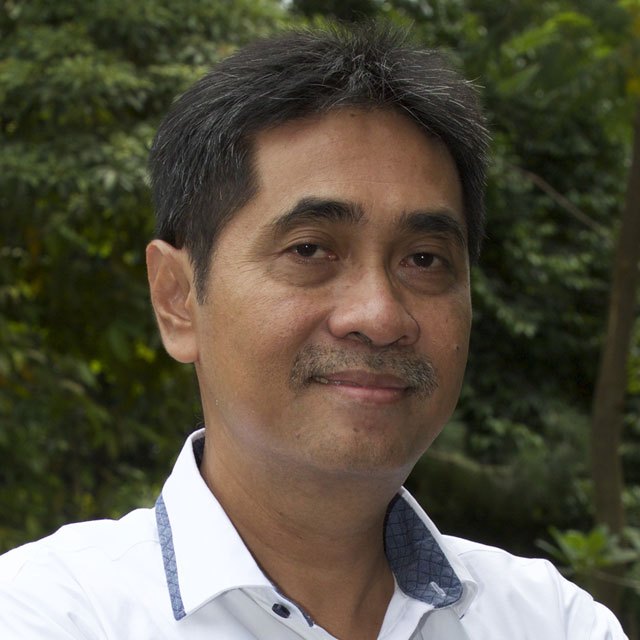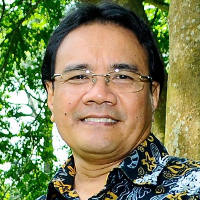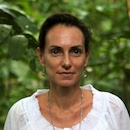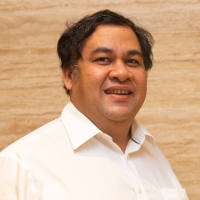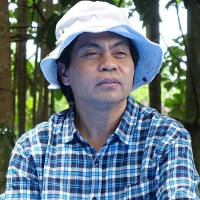Background:
Over the past five decades, the global population has doubled. The extraction and processing of natural resources has accelerated over the last two decades, accounting for more than 90 percent of global biodiversity loss and water stress and approximately half of global climate change impacts.
To equip global food consumption, many peat swamp forests were cleared, drained and turned into oil palm plantations and agricultural land. It caused unfavourable impacts on social conditions (e.g. land tenure) and the environment (e.g. increased GHG emissions, greater frequency of fires and loss of forest biodiversity including endangered species).
Key points:
- The Government of Indonesia has undertaken a major effort in reducing greenhouse gas emissions including preventing and controlling fires on peatlands, a moratorium on peatland development, and restoration. To successfully design emission reduction strategy and implement the action, it is necessary to identify responsible peatland management options. However, such efforts need to synchronize with national plans at regional levels, to help attract business investment
- Restoring degraded peatlands and rewetting peatland areas need to contribute to local livelihoods that provide economic benefits for the community
- Activities for restoration on the degraded peatlands, including the blocking of canals and cultivating vegetation
- Growing bioenergy crops on degraded and underutilized peatlands is a promising solution to meet the requirement for energy security requirements
- Paludiculture (agriculture and plant cultivation in wet conditions) can be considered a responsible management option for peatland management
- Indonesian and Japanese universities and researchers have undertaken joint long-term research on peatland restoration to seek for a promising solution to meet the requirements for food and energy security and land restoration
Center for International Forestry Research (CIFOR) and International Tropical Peatlands Center are organizing a peatlands session to provide a platform for exchanges of information between stakeholders concerned with the sustainability of tropical peatlands.
The outputs of the session will explore the possibility of engaging broader partners and countries for more effective South-South co-operation to tackle challenges around Peatlands conservation and restoration.
The program is designed to allow a smooth flow of information and open talk around the following discussion points:
- Share new knowledge and experiences around the implementation of peatland conservation and restoration at all levels
- Progress and challenges of activities for restoration on the degraded peatlands including the blocking of canals, cultivating vegetation and growing bioenergy crops
- Regulatory framework around the Paris Agreement and Nationally Determined Contributions (NDC); relating peatland restoration to the NDC processes
- Advancement of science and innovations in assessing peatlands’ GHG emissions, peat hydrology, fire risks, and provision of ecosystem services
- Engagement with the private sector and local community with gender sensitivity in peatlands conservation and restoration in the context of climate change mitigation and adaptation
Keynote address:
Agus Justianto
Representative of the Government of Indonesia, ex-officio member of the Board of Trustees, CIFOR
Moderator:
Daniel Murdiyarso
Principal Scientist, CIFOR
Speakers:
- Kristell Hergoualc’h, Scientist, Climate Change, Energy and low carbon development (CCE), CIFOR
→ The negative impacts on climate change of agriculture, pastoralism and forestry in peatlands. Examples from Indonesia and Peru - Nyoman Iswarayoga, External Affairs Director of Restorasi Ekosistem Riau (RER)
→ Peatlands landscape approach - Maria Nuutinen, Forestry Officer, Food and Agriculture Organisation of the United Nations (FAO)
→ Wet production – Food and other biomass for local livelihood benefits from sustainably managed peatlands (via web cast) - Haris Gunawan, Deputy of Research and Development, Peat Restoration Agency (BRG)
→ Restoration of Peatland Hydrology Units: Challenges to Mitigate Peat Fire and Improve Community Livelihood - Mitsuru Osaki, Professor, Hokkaido University
→ Carbon Accounting System of Tropical Peatland at TIER 3 level
Contact person:
- Haruni Krisnawati – h.krisnawati@cgiar.org
- Budhy Kristanty – b.kristanty@cgiar.org

